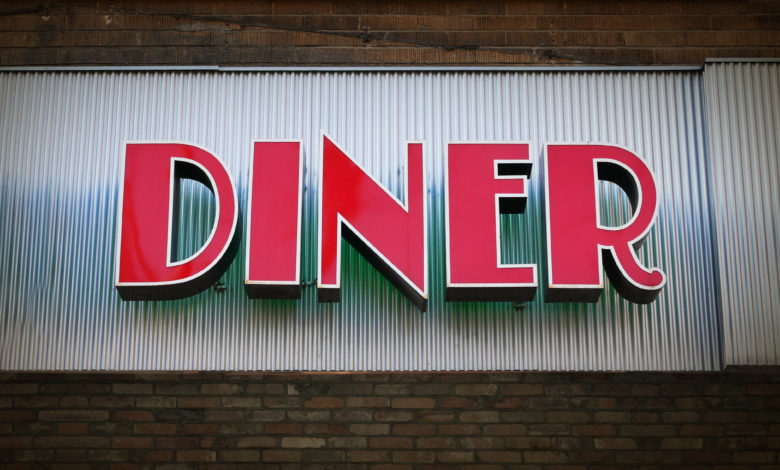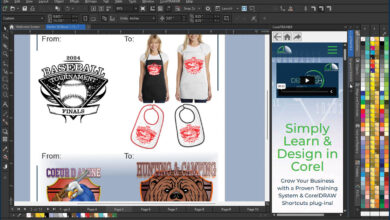
A GRAPHICS PRO reader recently reached out with a question regarding sign repossession and what to do when a customer refuses to pay. We pinged two sign experts—Mark Oatis of YESCO and Charity Jackson of Visual Horizons Custom Signs—to see if they had any advice for our reader.
Submission: Hi Guys, I have a question for the sign community, and I really want to know if anybody knows about a legal form for repossession of a sign in case a customer doesn’t want to pay or something that can guarantee us from unscrupulous people who want to take advantage of us. I need help.
Response from Mark Oatis:
In the sign industry (as everywhere else), your legal recourse is usually proportional to your willingness to actively seek it. Many sign companies have design title blocks that restrict the use of their artwork, and invoices that describe penalties and fees for late payment. You can get your customer’s signature on a contract at the point of sale, which implies his agreement with your terms; this might even have a “repossession” clause. But again (assuming you had such an agreement in place), what are you prepared to do if the contract is broken? Do you intend to enforce your claim?
If you go into court armed with your signed documents, they will help your case. And if you win, they may help you recover your legal fees, or even be awarded extra damages. But be aware that lawyer representation can incur substantial costs. Does the amount you are owed justify pursuing the matter in court? And beware of removing a sign from someone else’s property, even if you have not been paid for it. You could be charged with trespassing.
The frustration is apparent in your words; it sounds like this is a question based upon a real situation. Small claims court can be a low-cost option for you, provided the amount you hope to recover is beneath the (usually low) ceiling. Look online for a standard business template, then modify it (at the direction of your attorney) to suit the needs of your operation.
Response from Charity Jackson:
I remember my husband talking about this kind of “repossession” idea one time with his old bosses when he worked at a franchise sign shop. From my understanding, it’s not legal to take back a sign that has been installed even if the customer hasn’t paid. You just have to take legal action.
Since most signs are custom, it doesn’t really help the situation any by removing something you can’t resell anyway. We have had issues in the past, not many but a few, where we’ve had to take customers to small claims court to sue them for unpaid balances. We’ve only done this when the money owed was at least a couple thousand dollars. Smaller amounts are sent to a collection agency. Sometimes we get paid, often we don’t, but at least their credit score is affected.
So that said, it’s best if you can avoid this type of situation all together of course. Here are a few things we’ve done over the years to prevent wasted time or non-payment:
- We don’t do any proofs until we have an order. If it’s a big company that we’ve done work for in the past and we’re confident they’re going with us, we’ll knock out quick proofs, but as a general rule of thumb, we don’t do design work until we have an order and a deposit.
- If the customer really wants to see artwork before committing to a project, then we charge an art setup, paid in full upfront, and then we’ll do the design portion of the job. Then our time is covered whether they commit to the job or not.
- We used to have a long disclaimer printed on the back of our invoices, and we would have customers sign it. Honestly, I don’t know how much this did since we still ran into small issues and customers never read it. You can cover yourself in other ways, usually through good communication.
- If we’re removing graphics on a vehicle, we have a paint disclaimer form that covers us on any paint removal or other issues when taking off graphics. It points out possible issues to the customer, and since we have them sign it, it’s proof that this was reviewed, and they wanted us to move forward anyway. We have gone to court over paint coming off during removal, and because we had enough documentation showing the client was aware of possible issues, we won the case.
- We have a checklist of expectations we go through with customers if we’re doing a vehicle wrap. This helps clarify coverage, parts removal, art quality, and other items before we even start the wrap. It also improves communication between designers and installers.
- After a wrap, we have a maintenance checklist we give the customer, so they know how to maintain their wrap. We cover washing, pressure washer use, waxes, and possible issues to keep an eye out for.
- The most important thing is to get a 50% deposit on a job before you begin. If it’s a new customer (one you don’t have a working relationship with and hasn’t been set up on account), make sure you collect the balance when the job is picked up or installed. Anytime the customer gets the product and is then billed (i.e., is going to pay you “later”), you have the potential for non-payment. Sometimes they lose the invoice, have other things they deem more important to pay, or they simply want to drag out payment to improve their own cash flow.
So, the short answer: I don’t know that a legal form exists for repossessing a custom product, and there really is no fool-proof guarantee against unscrupulous people. You can only put smart policies in place to avoid being taken advantage of as much as possible. We’ve been doing this for 25 years, and most of the issues we had happened early on before we had our policies in place.
Do you have a business-related question? Maybe you’re wondering about a particular printing or design process in apparel decoration, personalization, or signage? Send your questions to abruce@nbm.com, and we’ll get an answer from an expert.



